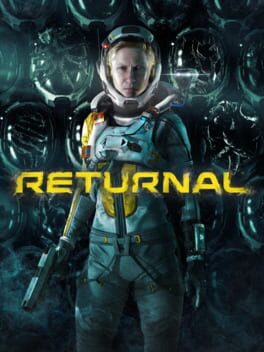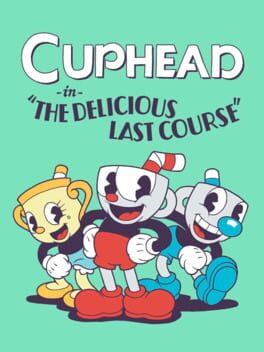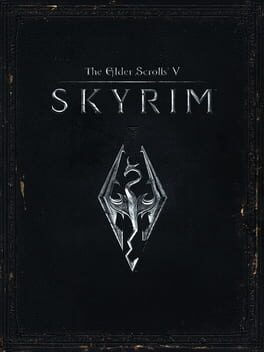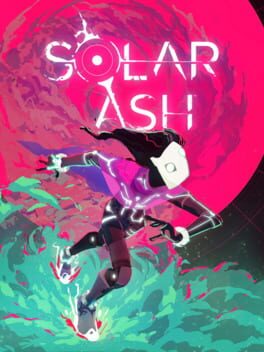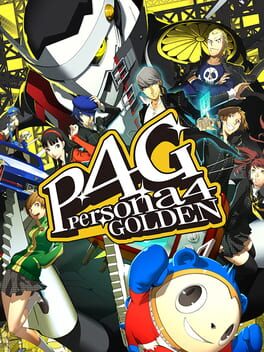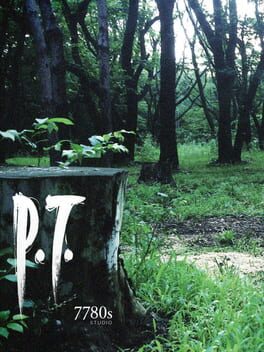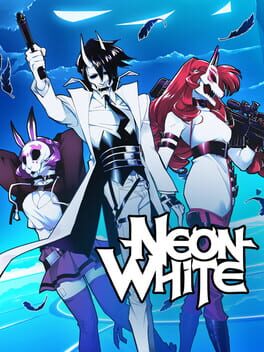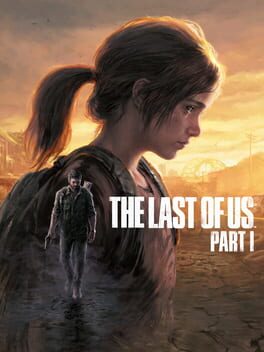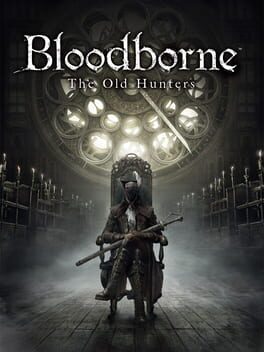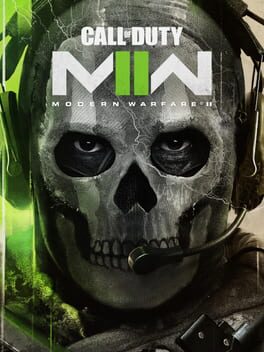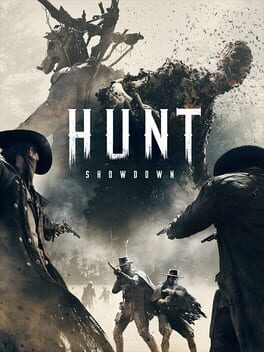Poonthers
2021
Returnal is a game I never thought I would beat. It's first stage and boss are so brutal I feel most players will spend most of their total playtime stuck here. Once you start to master the game and beat the first boss, the rest of the game starts to come significantly easier. Because of this extreme difficulty curve its hard for me to try to convince people who have given up on it to try again. They will most likely fail, and fail, and fail until hours later when they finally get it. I can't in good conscious say to those people struggling here that they have to or should suffer through this in order to make it through to the end. But, if somehow you do claw your way out of the first stage like Selene fighting through this impossible loop, I think the game is absolutely special and I haven't been able to stop thinking about it since I beat it.
The art direction in this game is absolutely mesmerizing. Glowing flora and fauna in a dark rainy forest, a giant lifeless desert that hides a tall mountain among its rock formation and sandstorms, gigeresque city scapes that blend mechanical veins with stone, its all done fantastically well. I loved being in the ever-shifting world of Returnal, and I feel sad that the difficulty/pacing of the game had me spend so much more time in the forest rather than the later areas.
Gameplay is fast paced and addicting, and while it gets easier to overcome the more you play it, it never becomes easy. It demands your attention all the way through. The bullet hell attacks are done in cool shapes and styles and keep the pressure on always. The bosses, despite them being very few, were all absolutely fantastic in design and mechanics. After I beat this game, I wanted to play more. The story was also a very unexpected plus for me in the end.
I wont spoil the entire game's story here on a review, but while I was expecting much more concrete progression in the logical events of the story, I was instead given something more unexpected. The story is like the world, illogical and impossible to fully understand, but the focus of the story is much more interested in the emotions of the player and the character. Symbolism, allusion, and subtext are king when it comes to putting everything together. I haven't played a game that pulled off a story quite like this ever. It's very impressive with what they were able to tell with what little direct story telling they provide.
All in all I loved this game. I can't in good consciousness give it a perfect review because of the issues with difficulty and pacing I outlined in the first paragraphs, but I would have no problem recommending this game to anyone with a PS5.
-PS, the adaptive trigger alt fire is EASILY the best and most innovative feature I've seen with a controller ever and I'd love to see more of it.
The art direction in this game is absolutely mesmerizing. Glowing flora and fauna in a dark rainy forest, a giant lifeless desert that hides a tall mountain among its rock formation and sandstorms, gigeresque city scapes that blend mechanical veins with stone, its all done fantastically well. I loved being in the ever-shifting world of Returnal, and I feel sad that the difficulty/pacing of the game had me spend so much more time in the forest rather than the later areas.
Gameplay is fast paced and addicting, and while it gets easier to overcome the more you play it, it never becomes easy. It demands your attention all the way through. The bullet hell attacks are done in cool shapes and styles and keep the pressure on always. The bosses, despite them being very few, were all absolutely fantastic in design and mechanics. After I beat this game, I wanted to play more. The story was also a very unexpected plus for me in the end.
I wont spoil the entire game's story here on a review, but while I was expecting much more concrete progression in the logical events of the story, I was instead given something more unexpected. The story is like the world, illogical and impossible to fully understand, but the focus of the story is much more interested in the emotions of the player and the character. Symbolism, allusion, and subtext are king when it comes to putting everything together. I haven't played a game that pulled off a story quite like this ever. It's very impressive with what they were able to tell with what little direct story telling they provide.
All in all I loved this game. I can't in good consciousness give it a perfect review because of the issues with difficulty and pacing I outlined in the first paragraphs, but I would have no problem recommending this game to anyone with a PS5.
-PS, the adaptive trigger alt fire is EASILY the best and most innovative feature I've seen with a controller ever and I'd love to see more of it.
The Delicious Last Course is a great DLC that got me back into Cuphead yet again. Almost all of the bosses here are some of the best this team has put out yet in terms of charm and quality of animation, and most are incredibly difficult. My biggest criticism of this DLC is how they implement this difficulty. I love a good bullethell bossfight, but with some of these bosses the levels aren't as readable as I would like them to be. The complaint I'm voicing is NOT that its hard to dodge these bullets, the complaint is that its hard to see the bullets themselves. The last boss of this DLC is a particularly poignant example of what I am describing as your eyes struggle to read both the background and foreground at the same time. None of the fights in this DLC are ruined by this design, but when you inevitably lose to some of these bosses it leaves a more frustrating feeling than most of the base game fights. All in all I had a great time with the DLC, and if your a fan of Cuphead you should play this DLC.
2019
"This game is important." This is what I think every time I reflect on my time spent playing Outer Wilds. What I mean by this is that Outer Wilds is one of those games that I played at the right place, at the right time, and feels as though it has significantly impacted me in a way few games really do. I will keep this review as spoiler free as possible so that others may enjoy this game as I have.
The design philosophy at the heart of Outer Wilds is to give the player a large physics-based solar system sandbox, and let the player progress through their own self motivation. There is no path, there is no directive; just explore and take away what you learned. The culmination of all that you learn in Outer Wilds will ultimately lead you to the end credits. There are plenty of threads to pull on, each revealing an interesting part of the history, mystery, or mechanics of the Outer Wilds universe. But if you are worried about becoming too lost in this game, the developers have a system to address this as well. All of the story threads are cleverly catalogued in your ships computer, and will always provide a starting point for those who become "stuck" in the game. I put the word "stuck" in quotations because exploration and trying new approaches, even if unfruitful or uneventful, are core experiences of the game and can even be highlights of the experience. The game certainly gains momentum when you find the right thread to pull on and suddenly find yourself with the knowledge to pull another three, but your "failures" in exploring this universe never take away from your progress and are just as important to the experience overall. It's important to note that the key to progression in Outer Wilds is largely based on player knowledge. What keeps you from progressing to the end of the game is the lack of knowledge as to what the end game even is and how you could reach it. It's a truly brilliantly designed system that keeps the player coming back for more and makes all progress feel distinctly earned by the player. Even if you choose to forgo attempting to complete the story of Outer Wilds, the game still succeeds in being a massively fun outer-space physics simulation. Once you learn the fundamentals of it all, you are free to attempt any wild feat of physics you can imagine. This can allow you to get to places or see things in ways most likely unintended by the developers, and that alone for many players is exciting. I cannot praise this game enough when it comes to design philosophy or game mechanics, and I have to give similar praise to the art direction, sound design, and music as well.
Outer Wilds has an aesthetic that is equal parts comfy, mysterious, beautiful, and at times cosmically scary. These things would seem to conflict with each other, but Outer Wilds strings these things together beautifully. Your spaceship is a loving mix of ancient alien technology and wood planks. At some point you will switch your audio telescope away from the gentle frequency of a fellow explorer's banjo to hear an inscrutable Nomai signal. When you are admiring the universe around you, you will watch distant stars blink out of existence in beautiful showers that will ultimately leave you more alone in the cold dark of space. When you feel bold your sense of confidence and security will entirely abandon you when you leave your ship in the middle of empty space and you are left to float alone with just the sounds of your suit and your breathing to keep you company. It is truly a one of a kind experience that gives the large, miraculous, and deadly vacuum of space the considerations it deserves. The soundtrack of this game is in a league of its own and deserves to be considered among the best of video game OSTs. I often find myself putting on the Outer Wilds soundtrack when I need to peacefully drift off into sleep or reflect on something important in my life. Andrew Prahlow gave such a lovingly crafted soundtrack to this game and for that I am sincerely grateful to him.
There are more things positives that I'd like to include but I do not want to go detail for the sake of players who have yet to explore this game. Just know that the planet designs and take aways from this game are all wonderful and deserve their own separate analyses and essays (if you're interested I know there is a surplus of exactly these types of videos on Youtube).
My review is one of many that have universally praised this game in every way possible, and I'm proud to join that chorus of voices. Outer Wilds is a lovingly crafted experience that has been the subject of a lot of acclaim and romanticism from the community. The developers should be proud of what they created; it is truly in a league of its own. If you're still reading and are on the fence about getting Outer Wilds, please play this game. It has been one of my most significant gaming experiences in the last 5 years, and it could be one of yours too.
The design philosophy at the heart of Outer Wilds is to give the player a large physics-based solar system sandbox, and let the player progress through their own self motivation. There is no path, there is no directive; just explore and take away what you learned. The culmination of all that you learn in Outer Wilds will ultimately lead you to the end credits. There are plenty of threads to pull on, each revealing an interesting part of the history, mystery, or mechanics of the Outer Wilds universe. But if you are worried about becoming too lost in this game, the developers have a system to address this as well. All of the story threads are cleverly catalogued in your ships computer, and will always provide a starting point for those who become "stuck" in the game. I put the word "stuck" in quotations because exploration and trying new approaches, even if unfruitful or uneventful, are core experiences of the game and can even be highlights of the experience. The game certainly gains momentum when you find the right thread to pull on and suddenly find yourself with the knowledge to pull another three, but your "failures" in exploring this universe never take away from your progress and are just as important to the experience overall. It's important to note that the key to progression in Outer Wilds is largely based on player knowledge. What keeps you from progressing to the end of the game is the lack of knowledge as to what the end game even is and how you could reach it. It's a truly brilliantly designed system that keeps the player coming back for more and makes all progress feel distinctly earned by the player. Even if you choose to forgo attempting to complete the story of Outer Wilds, the game still succeeds in being a massively fun outer-space physics simulation. Once you learn the fundamentals of it all, you are free to attempt any wild feat of physics you can imagine. This can allow you to get to places or see things in ways most likely unintended by the developers, and that alone for many players is exciting. I cannot praise this game enough when it comes to design philosophy or game mechanics, and I have to give similar praise to the art direction, sound design, and music as well.
Outer Wilds has an aesthetic that is equal parts comfy, mysterious, beautiful, and at times cosmically scary. These things would seem to conflict with each other, but Outer Wilds strings these things together beautifully. Your spaceship is a loving mix of ancient alien technology and wood planks. At some point you will switch your audio telescope away from the gentle frequency of a fellow explorer's banjo to hear an inscrutable Nomai signal. When you are admiring the universe around you, you will watch distant stars blink out of existence in beautiful showers that will ultimately leave you more alone in the cold dark of space. When you feel bold your sense of confidence and security will entirely abandon you when you leave your ship in the middle of empty space and you are left to float alone with just the sounds of your suit and your breathing to keep you company. It is truly a one of a kind experience that gives the large, miraculous, and deadly vacuum of space the considerations it deserves. The soundtrack of this game is in a league of its own and deserves to be considered among the best of video game OSTs. I often find myself putting on the Outer Wilds soundtrack when I need to peacefully drift off into sleep or reflect on something important in my life. Andrew Prahlow gave such a lovingly crafted soundtrack to this game and for that I am sincerely grateful to him.
There are more things positives that I'd like to include but I do not want to go detail for the sake of players who have yet to explore this game. Just know that the planet designs and take aways from this game are all wonderful and deserve their own separate analyses and essays (if you're interested I know there is a surplus of exactly these types of videos on Youtube).
My review is one of many that have universally praised this game in every way possible, and I'm proud to join that chorus of voices. Outer Wilds is a lovingly crafted experience that has been the subject of a lot of acclaim and romanticism from the community. The developers should be proud of what they created; it is truly in a league of its own. If you're still reading and are on the fence about getting Outer Wilds, please play this game. It has been one of my most significant gaming experiences in the last 5 years, and it could be one of yours too.
1994
Having never played this specific iteration of Metroid but having heard good things about it, I was absolutely blown away by just how all around perfect this game is. It was everything I liked from other Metroid games, yet despite it being such an early entry in the series it did everything so well. Loved this game
2021
2021
Having restarted my journey with this game recently on Hard Mode, it kills me to see this game not get the love I really think it deserves. The game is absolutely gorgeous to look at, and most importantly it is incredibly fun to play. Navigating through these environments as fast and stylishly as your character does it is always satisfying and rewarding. The movement mechanics are the heart of the experience with this game and it never gets dull. Every environment in this game is like a beautiful surrealist painting, and generally the art direction is a masterclass throughout.
For a game explicitly about the impending doom of your planet, the game offers a surprising amount of levity in world and character design that does not interfere with the story this game is trying to tell. The team at Heart Machine are top of their class in emotional story telling, and Solar Ash is no exception. The swelling music as you make your final runs at a boss will always stick in my head when thinking about this game; it's practically magical. By the time you come to the end of your journey in the Ultravoid, the game offers a deep meaningful take away message that I wasn't expecting but absolutely appreciated. What feels particularly great about playing a Heart Machine story is that the themes and story beats, while they may take place in far off alien places, feel incredibly personal to the developers and insanely human. The game is not perfect by any means and could certainly tighten up a few aspect relating to smaller enemy encounters and rewards given by exploring the environment. All that being said, this game is the first 3D title the studio has put out and in light of all the things the team absolutely nailed with this game, it should be far more celebrated and appreciated. It may not be as tightly designed as Hyper Light Drifter, but it is absolutely a majorly positive contribution to Heart Machines catalogue that I'll easily recommend to anybody looking for a stylish movement platformer.
For a game explicitly about the impending doom of your planet, the game offers a surprising amount of levity in world and character design that does not interfere with the story this game is trying to tell. The team at Heart Machine are top of their class in emotional story telling, and Solar Ash is no exception. The swelling music as you make your final runs at a boss will always stick in my head when thinking about this game; it's practically magical. By the time you come to the end of your journey in the Ultravoid, the game offers a deep meaningful take away message that I wasn't expecting but absolutely appreciated. What feels particularly great about playing a Heart Machine story is that the themes and story beats, while they may take place in far off alien places, feel incredibly personal to the developers and insanely human. The game is not perfect by any means and could certainly tighten up a few aspect relating to smaller enemy encounters and rewards given by exploring the environment. All that being said, this game is the first 3D title the studio has put out and in light of all the things the team absolutely nailed with this game, it should be far more celebrated and appreciated. It may not be as tightly designed as Hyper Light Drifter, but it is absolutely a majorly positive contribution to Heart Machines catalogue that I'll easily recommend to anybody looking for a stylish movement platformer.
2020
Persona 4 Golden was a game I was very excited to jump into. I would describe myself as a new comer to the series only having played Persona 5 Royal prior to this. Having played the latest iteration of the mainline game, it would be impossible to not draw some comparisons between P4G and P5R but I cannot and will not fault P4G for not being P5R. In a lot of ways it was fun to look mechanically at P4G and see so many of the things I really enjoyed in P5R in their earlier forms. This being said, I will never be able to have the experience of playing Persona 4 Golden at the time of its release, so all analyses will be coming from a play through that is far separated from its original debut.
Compared to the latest entry in the mainline series, Persona 4 Golden is a bright and colorful adventure. I love the vibe the game is going for. Inaba feels like a faithful recreation of a sleepy small town that’s always dappled in fading sunlight on non-rainy days. The attitudes of the locals carries that country laid back attitude mixed with concern of impending financial ruin that is always present in places filled with locally run businesses. "Heartbeat, Heartbreak" and "Signs Of Love" from the soundtrack really sell this vibe as you run around the small town pursuing relationships with the people around you and working part time jobs. This is the perfect setup for the juxtaposition this game imposes upon the player: there is something sinister lurking within the town of Inaba. People keep turning up dead, strung up in odd fashions with no clear cause of death. Even more mysterious is the ghostly Midnight Channel, an unlisted TV channel that plays on your old CRTV at midnight when its raining. It is genuinely unsettling to hear the song "Who's there?" come on when you watch the inscrutable Midnight Channel and realize that it is predicting the next murder victim. Because of this uncomfortable juxtaposition, the main quest and puzzle at the heart of this game are extremely compelling early on. While the pay-off of the entire story didn't quite live up to my expectations (I felt as though some of the characterization of the villain was not as strong as it could and should have been), I still had a lot of fun from beginning to end. During your pursuit of the serial killer within this small town you will encounter a surprisingly large cast of characters to engage with. The quality of some of these social links can vary heavily, however, the game has some really high peaks it achieves.
A large part of the Persona formula post Persona 3 is the life simulator elements. In Persona 4 Golden you are roleplaying as an exchange student from the city coming into this small town to live with your uncle and niece for the school year. During your limited time in Inaba you are able to and encouraged to build up your relationships with those around you. As a whole, the main supporting cast (specifically all the members of the investigation team and the Dojimas) is mostly well written and compelling. Save for Teddy, this games otherworldly companion (the Morgana archetype for those who have played P5R) who is difficult to watch when it comes to how he interacts with women, I enjoyed my time with all of the main cast S Links. Mechanically it is a shame that there are drastically less benefits of pursuing relationships outside the main cast, but I’ve already seen how they innovate on this mechanic later in P5R. Regardless, all S Link storylines reflect the main themes of this game, self-acknowledgement and acceptance, in ways that were sort of unexpected. Where the Persona 5 Royale confidants had story lines about self-determination and fighting against societal structures meant to keep them down, Persona 4 Golden goes quite the opposite root. Rather than have these characters have story arcs of self-determination, most of the characters instead decide to embrace their public perception and societal roles while accepting their difficulty to come to terms with it. It becomes interesting to look at because these characters are dynamic not in how they chose to conduct their life, but rather how they feel about their lot and life and choices. I'd like to call special attention here to Kanji's S Link as I believe his is the best done and most nuanced. Admittedly, the game does have some off-putting moments of mild homophobia between two of the characters and the game seems to want to include themes related to homosexuality without actually fully committing to the conversation. Ultimately this is something I was able to come to terms with and move around as it is a product of 2008 and I am approaching the game from a western perspective and background in the year 2023. All of that aside, there are two other issues with these life sims elements that I would like to touch on however.
A large problem I had within the life sim elements of P4G is related to the main character that you are roleplaying as. While I was playing, it was impossible for me to ignore that he has such a weak lead in and setup within the story that it makes it difficult for the player to actually roleplay and identify with him. Atlus seemingly wanted to give the player a blank slate to work with as they adventure, but the best protagonists of RPGs do typically have some sort of identifying characteristic lead-in that allows you to get into the character better. In Persona 5 Royale, Joker may be a blank slate for the player to toy around with in dialogue options, but he has a very well defined lead-in and compelling character arc. You start Persona 5 Royale as someone punished for doing the right thing. You are constantly put down and watched closely because you are labeled a trouble maker after you had used your judgement to try to save a woman being harassed by a high profile politician. Because of this lead-in to the P5R, while I may have been provided dialogue options I could freely choose between, it made my characterization much easier to grasp and role play into. The protagonist of P4G has none of this sort of lead-in other than loosely saying "he's a good guy". While mechanically I still get to make dialogue choices just like P5R, I have a lot less commitment to a character and do not identify easily with the protagonist. There is one S Link however that Atlus tries to nudge you towards that helps with this identity issue: Atlus seemingly wants you to establish a strong S Link with the niece, Nanako. Nanako's character arc revolves around her being emotionally neglected by her workaholic and emotionally distant father Dojima. She is a character you will spend a lot of time with within the course of the game, and Atlus is always eager to provide you extra opportunity to spend time with Nanako. If you pursue Nanako's S Link, you get the firm feeling that the protagonist wants to be, and is, a good big brother to a little girl who desperately needs someone in their life to pay attention to them. This is the only real strong identifying characteristic the playable character is given, and even then it is somewhat optional. I think if Atlus had put more emphasis on this as either a mandatory characteristic established at the beginning of the game, or provided one other identifying characteristic for me to latch on to during the introduction, I would have enjoyed playing as my character significantly more. The other problem with the life sim elements of P4G is that the game feels mechanically opposite of the vibe it’s trying to sell you.
Just like the latest iteration, P5R, Persona 4 Golden offers a lot of things for the player to do. This however feels juxtaposed to mood the game is trying to sell you. Inaba is purposefully designed to be a sleepy boring town, but for me there was always a wealth of things to do other than when it was raining. There is a strong story emphasis to the player that the other characters in the investigation team are barely staving off boredom in a small town. Yosuke explicitly says that this is a feeling that he thinks you should be able to relate to as someone from the city. But other than a few rainy days, I was never bored in Inaba. There was always something to do until the very end of the game. Due to what I assume were development limitations that would have been around at the time of its release relating to complex systems of choices and consequences, the game instead opts to offer you a million side tracks to follow with no deviation narratively. What this mechanically provides is lots of choices for things do while in the town of Inaba with no little to no flexibility in how those activities and relationships end up. This feels directly opposed to the game trying to sell you on the idea that you are living in a sleepy, past its prime town. I cannot stress enough that you have so many activities that you can choose to engage with. This system works in P5R because your living it up in the bright and busy streets of Tokyo, but in P4G it feels as though it thematically clashes. As I said earlier, I understand why they might have opted for this approach, but there still could have been more effort in other places to remedy it. For example: why are all the activities you can chose to participate in above board? One of the most consistent storytelling pairings with boredom is mischief, yet there is none to be had in the life sim activities. You are an upstanding citizen in a place that has limited activities, thematically you should be bored constantly, but you are not. Even if they had your characters hanging out someplace they shouldn't be in, or had them do one kind of mischievous activity once in a while, this would help alleviate this mismatch significantly. All of that aside, mechanically this game is sound but borders on tedious outside its life-sim elements.
Persona 4 Golden's combat is exactly what I was expecting it to be having played P5R, and despite it lacking some of the flair that would come later in the series it is still rock solid. Every combat encounter feels like a puzzle you're meant to solve by exploiting your enemy’s weaknesses in the most efficient way possible. It's a lot of fun on its own, but with the dungeon design it does tend to feel a bit tedious and grindy at times. Atlus made the choice to have dungeons that are not intentionally designed but rather a set of randomly generated hallways. This tends to make a lot of the floors feel very same-y and the repetition of many combat encounters and similar scenery can really be fatiguing by the time you reach the last floor of the dungeon. Because of this fatigue, I was always excited to go back to the game when I was in the life-sim portions, and I was apprehensive when I was in the dungeons. As I said earlier, the core combat is solid, so I never disliked the game mechanically, but my mindset was always that the dungeon was something I just had to slog my way through. Lastly before wrapping up this review, i would like to touch upon the "Golden" aspect of Persona 4 Golden.
Persona 4 Golden is essentially the extended directors cut of Persona 4 just like Persona 5 Royale is to Persona 5. The edition of the game introduces a new S Link and a unique dungeon. I don't feel as though any of the additional content is particularly compelling as I felt with the additional content in P5R, but it’s not bad either. With the additional content of P4G however, the game does overstay its welcome by a few hours by the time you reach the end. I swear the game was going to end about 5 times before credits actually rolled. I definitely enjoyed my time with the game, but I was ready for it to end.
Overall, I really did enjoy my time with Persona 4 Golden despite its age and flaws. If I was to recommend a game from the series, I think that I would still recommend P5R way before P4G. As a newcomer to the series and a fan of its mix of combat and life-sim elements, I'm glad I visited this title, and I’m excited to explore Persona 3 Reload when that is released.
Compared to the latest entry in the mainline series, Persona 4 Golden is a bright and colorful adventure. I love the vibe the game is going for. Inaba feels like a faithful recreation of a sleepy small town that’s always dappled in fading sunlight on non-rainy days. The attitudes of the locals carries that country laid back attitude mixed with concern of impending financial ruin that is always present in places filled with locally run businesses. "Heartbeat, Heartbreak" and "Signs Of Love" from the soundtrack really sell this vibe as you run around the small town pursuing relationships with the people around you and working part time jobs. This is the perfect setup for the juxtaposition this game imposes upon the player: there is something sinister lurking within the town of Inaba. People keep turning up dead, strung up in odd fashions with no clear cause of death. Even more mysterious is the ghostly Midnight Channel, an unlisted TV channel that plays on your old CRTV at midnight when its raining. It is genuinely unsettling to hear the song "Who's there?" come on when you watch the inscrutable Midnight Channel and realize that it is predicting the next murder victim. Because of this uncomfortable juxtaposition, the main quest and puzzle at the heart of this game are extremely compelling early on. While the pay-off of the entire story didn't quite live up to my expectations (I felt as though some of the characterization of the villain was not as strong as it could and should have been), I still had a lot of fun from beginning to end. During your pursuit of the serial killer within this small town you will encounter a surprisingly large cast of characters to engage with. The quality of some of these social links can vary heavily, however, the game has some really high peaks it achieves.
A large part of the Persona formula post Persona 3 is the life simulator elements. In Persona 4 Golden you are roleplaying as an exchange student from the city coming into this small town to live with your uncle and niece for the school year. During your limited time in Inaba you are able to and encouraged to build up your relationships with those around you. As a whole, the main supporting cast (specifically all the members of the investigation team and the Dojimas) is mostly well written and compelling. Save for Teddy, this games otherworldly companion (the Morgana archetype for those who have played P5R) who is difficult to watch when it comes to how he interacts with women, I enjoyed my time with all of the main cast S Links. Mechanically it is a shame that there are drastically less benefits of pursuing relationships outside the main cast, but I’ve already seen how they innovate on this mechanic later in P5R. Regardless, all S Link storylines reflect the main themes of this game, self-acknowledgement and acceptance, in ways that were sort of unexpected. Where the Persona 5 Royale confidants had story lines about self-determination and fighting against societal structures meant to keep them down, Persona 4 Golden goes quite the opposite root. Rather than have these characters have story arcs of self-determination, most of the characters instead decide to embrace their public perception and societal roles while accepting their difficulty to come to terms with it. It becomes interesting to look at because these characters are dynamic not in how they chose to conduct their life, but rather how they feel about their lot and life and choices. I'd like to call special attention here to Kanji's S Link as I believe his is the best done and most nuanced. Admittedly, the game does have some off-putting moments of mild homophobia between two of the characters and the game seems to want to include themes related to homosexuality without actually fully committing to the conversation. Ultimately this is something I was able to come to terms with and move around as it is a product of 2008 and I am approaching the game from a western perspective and background in the year 2023. All of that aside, there are two other issues with these life sims elements that I would like to touch on however.
A large problem I had within the life sim elements of P4G is related to the main character that you are roleplaying as. While I was playing, it was impossible for me to ignore that he has such a weak lead in and setup within the story that it makes it difficult for the player to actually roleplay and identify with him. Atlus seemingly wanted to give the player a blank slate to work with as they adventure, but the best protagonists of RPGs do typically have some sort of identifying characteristic lead-in that allows you to get into the character better. In Persona 5 Royale, Joker may be a blank slate for the player to toy around with in dialogue options, but he has a very well defined lead-in and compelling character arc. You start Persona 5 Royale as someone punished for doing the right thing. You are constantly put down and watched closely because you are labeled a trouble maker after you had used your judgement to try to save a woman being harassed by a high profile politician. Because of this lead-in to the P5R, while I may have been provided dialogue options I could freely choose between, it made my characterization much easier to grasp and role play into. The protagonist of P4G has none of this sort of lead-in other than loosely saying "he's a good guy". While mechanically I still get to make dialogue choices just like P5R, I have a lot less commitment to a character and do not identify easily with the protagonist. There is one S Link however that Atlus tries to nudge you towards that helps with this identity issue: Atlus seemingly wants you to establish a strong S Link with the niece, Nanako. Nanako's character arc revolves around her being emotionally neglected by her workaholic and emotionally distant father Dojima. She is a character you will spend a lot of time with within the course of the game, and Atlus is always eager to provide you extra opportunity to spend time with Nanako. If you pursue Nanako's S Link, you get the firm feeling that the protagonist wants to be, and is, a good big brother to a little girl who desperately needs someone in their life to pay attention to them. This is the only real strong identifying characteristic the playable character is given, and even then it is somewhat optional. I think if Atlus had put more emphasis on this as either a mandatory characteristic established at the beginning of the game, or provided one other identifying characteristic for me to latch on to during the introduction, I would have enjoyed playing as my character significantly more. The other problem with the life sim elements of P4G is that the game feels mechanically opposite of the vibe it’s trying to sell you.
Just like the latest iteration, P5R, Persona 4 Golden offers a lot of things for the player to do. This however feels juxtaposed to mood the game is trying to sell you. Inaba is purposefully designed to be a sleepy boring town, but for me there was always a wealth of things to do other than when it was raining. There is a strong story emphasis to the player that the other characters in the investigation team are barely staving off boredom in a small town. Yosuke explicitly says that this is a feeling that he thinks you should be able to relate to as someone from the city. But other than a few rainy days, I was never bored in Inaba. There was always something to do until the very end of the game. Due to what I assume were development limitations that would have been around at the time of its release relating to complex systems of choices and consequences, the game instead opts to offer you a million side tracks to follow with no deviation narratively. What this mechanically provides is lots of choices for things do while in the town of Inaba with no little to no flexibility in how those activities and relationships end up. This feels directly opposed to the game trying to sell you on the idea that you are living in a sleepy, past its prime town. I cannot stress enough that you have so many activities that you can choose to engage with. This system works in P5R because your living it up in the bright and busy streets of Tokyo, but in P4G it feels as though it thematically clashes. As I said earlier, I understand why they might have opted for this approach, but there still could have been more effort in other places to remedy it. For example: why are all the activities you can chose to participate in above board? One of the most consistent storytelling pairings with boredom is mischief, yet there is none to be had in the life sim activities. You are an upstanding citizen in a place that has limited activities, thematically you should be bored constantly, but you are not. Even if they had your characters hanging out someplace they shouldn't be in, or had them do one kind of mischievous activity once in a while, this would help alleviate this mismatch significantly. All of that aside, mechanically this game is sound but borders on tedious outside its life-sim elements.
Persona 4 Golden's combat is exactly what I was expecting it to be having played P5R, and despite it lacking some of the flair that would come later in the series it is still rock solid. Every combat encounter feels like a puzzle you're meant to solve by exploiting your enemy’s weaknesses in the most efficient way possible. It's a lot of fun on its own, but with the dungeon design it does tend to feel a bit tedious and grindy at times. Atlus made the choice to have dungeons that are not intentionally designed but rather a set of randomly generated hallways. This tends to make a lot of the floors feel very same-y and the repetition of many combat encounters and similar scenery can really be fatiguing by the time you reach the last floor of the dungeon. Because of this fatigue, I was always excited to go back to the game when I was in the life-sim portions, and I was apprehensive when I was in the dungeons. As I said earlier, the core combat is solid, so I never disliked the game mechanically, but my mindset was always that the dungeon was something I just had to slog my way through. Lastly before wrapping up this review, i would like to touch upon the "Golden" aspect of Persona 4 Golden.
Persona 4 Golden is essentially the extended directors cut of Persona 4 just like Persona 5 Royale is to Persona 5. The edition of the game introduces a new S Link and a unique dungeon. I don't feel as though any of the additional content is particularly compelling as I felt with the additional content in P5R, but it’s not bad either. With the additional content of P4G however, the game does overstay its welcome by a few hours by the time you reach the end. I swear the game was going to end about 5 times before credits actually rolled. I definitely enjoyed my time with the game, but I was ready for it to end.
Overall, I really did enjoy my time with Persona 4 Golden despite its age and flaws. If I was to recommend a game from the series, I think that I would still recommend P5R way before P4G. As a newcomer to the series and a fan of its mix of combat and life-sim elements, I'm glad I visited this title, and I’m excited to explore Persona 3 Reload when that is released.
2014
2022
Gameplay wise this game has a wonderfully executed loop that kept me coming back to every level until I hit that platinum rank. Its challenging but doesnt demand perfection, but mechanically it leave plenty of room to pursue it if you want to. The visual novel story is what keep this game from being perfect. The story is wonderfully, painfully, and I believe intentionally, 2000s anime cringe. It can be tough to it through some times, especially when Neon Violet is in the picture. However it the weight of the story I take issue with. Even with the serious stakes later expressed in the story, the emotional weight of the story just never matches up, and it definitely never matches the intensity of the gameplay. All in all I'd still have absolutely no problem recommending this game to anyone and enjoyed almost all my time with it.
Easily the best version of the game. The game looks incredible and feels better to play than it has before (though most of the gameplay loop is the same). $70 is a tough price tag to swallow, but if its your first time playing its 100% worth it. For any returning fans, try to find it on sale if you feel like you want to dive back in to the game for the graphical/AI improvements.
Another yearly COD that I mostly enjoy. I prefer a little bit more of the arcade style COD personally. Campaign was decent, nothing revolutionary. Warzone 2 and DMZ are great additions to the game. I am just waiting for gunfight to be re-introduced to the game. I feel like gunfight was easily the best multiplayer mode in the last Modern Warfare and it the gunplay in this game would highly compliment it.
2019
